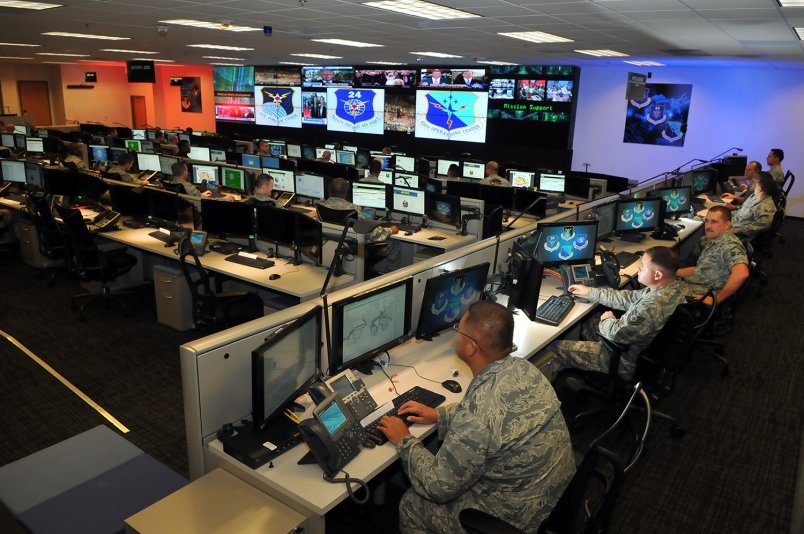(Cyberwar.news) The Pentagon has begun using offensive cyber weapons against the Islamic State, to disrupt communications between members and inhibit their ability to operate in cyberspace.
U.S. Cyber Command has taken the lead in the campaign, Defense Secretary Ash Carter said last week, in an effort that aims primarily to “cause them to lose confidence in their network, to overload their network so that they can’t function and do all of these things that will interrupt their ability to command and control forces there,” he said.
Carter noted that the new cyber capabilities go beyond jamming used in traditional electronic warfare, FierceGovernmentIT reported. The overarching goal is to disrupt the Islamic State, sometimes with the goal of pushing the terrorist group to other forms of communication that are more easily monitored.
“We’re trying to force them to make changes. We’re trying to make them – disrupt their communications, and then we can anticipate some of the adaptations they’re going to make and be a step ahead of them,” said Gen. Joseph Dunford, chairman of the Joint Chiefs of Staff, during a press conference.
The JCS chairman added that the in the current effort against ISIS, Cyber Command [CYBERCOM] is assembling an inventory of tools that other combatant commanders will benefit from in the future.
“You can’t replicate what we’re doing today against ISIL in Iraq and Syria elsewhere in the world. What you can do is leverage the tools that have been developed for this particular operation, for other operations down the road,” said Dunford.
“So this is something that’s new in this war, not something you would’ve seen back in the Gulf War,” Carter added, as reported by the Washington Free Beacon. “But it’s an important new capability and it is an important use of our Cyber Command and the reason that Cyber Command was established in the first place.”
“I think conceptually, that’s exactly the same thing we’re trying to do in the cyber world,” Dunford said.
“In other words, we’re trying to both physically and virtually isolate ISIL, limit their ability to conduct command and control, limit their ability to communicate with each other, limit their ability to conduct operations locally and tactically.”
The Free Beacon reported further:
Cyber warfare involves the use of trained computer hackers, backed by electronic and human intelligence, to break into foreign computer networks and information systems. Once inside, the attackers can implant viruses or other malware to disrupt information systems or fool them into taking action that can cause damage to their organization and its information technology.
When pressed, Dunford would not provide details about CYBERCOM’s operations against ISIS, so the enemy would not learn about the campaign, including the time, location and methods of attacks.
“We don’t want them to have information that will allow them to adapt over time,” he said. “We want them to be surprised when we conduct cyber operations, and frankly, they’re going to experience some friction that’s associated with us and some friction that’s just associated with the normal course of events in dealing in the information age.”
Carter added that the cyber campaign against ISIS is just one part of the wider military effort launched by the United States and its allies.
“We can’t allow them to freely command and control forces that are enemy forces, so it’s just like any other war,” he said. “We have to attack their command-and-control. This is one of the ways of doing it. But it may have, actually, a beneficial effect of driving them to the kinds of communications that it’s in fact easier for us to disrupt, and listen to also.”
See also:
Cyberwar.news is part of the USA Features Media network of sites.


